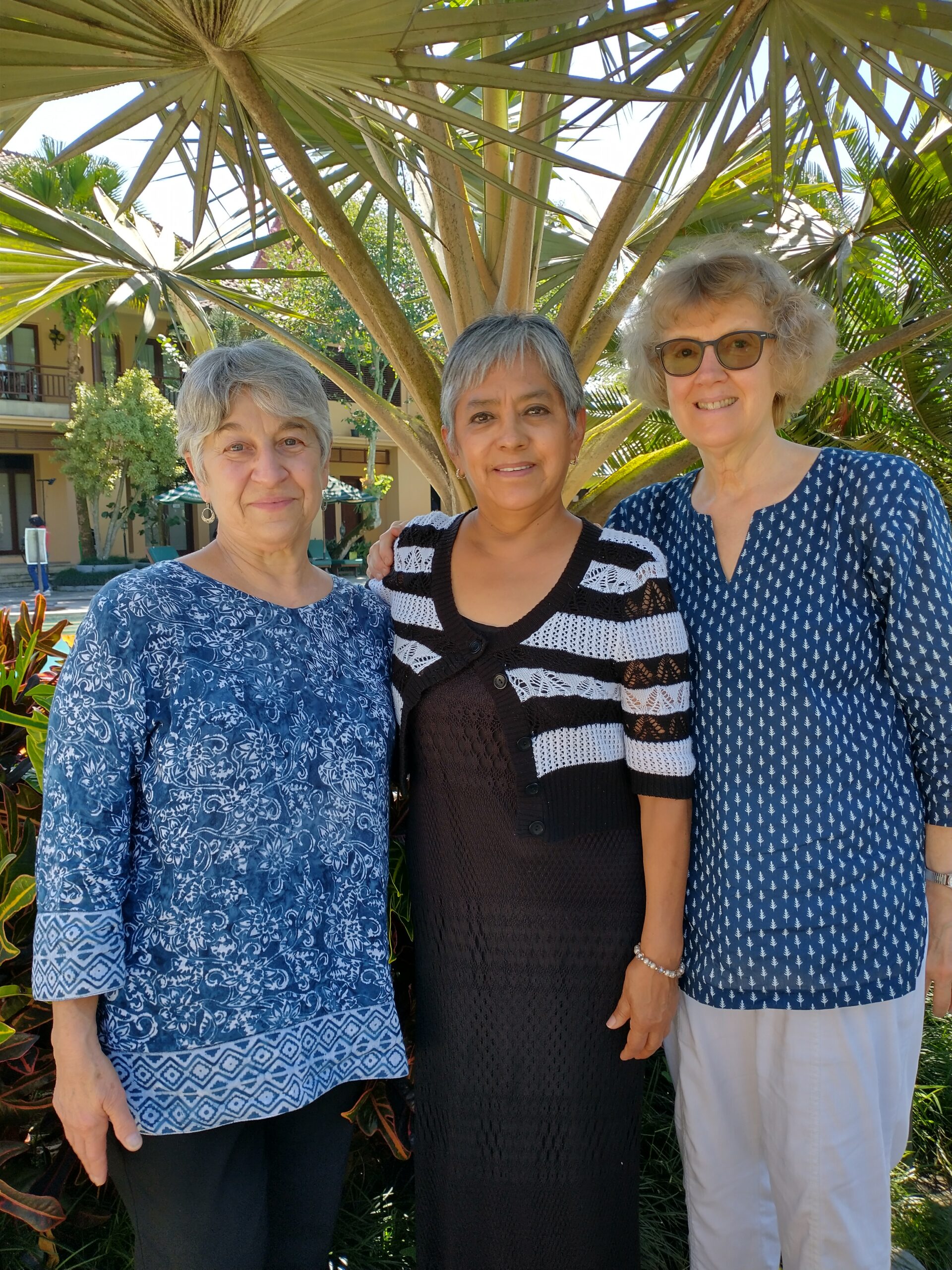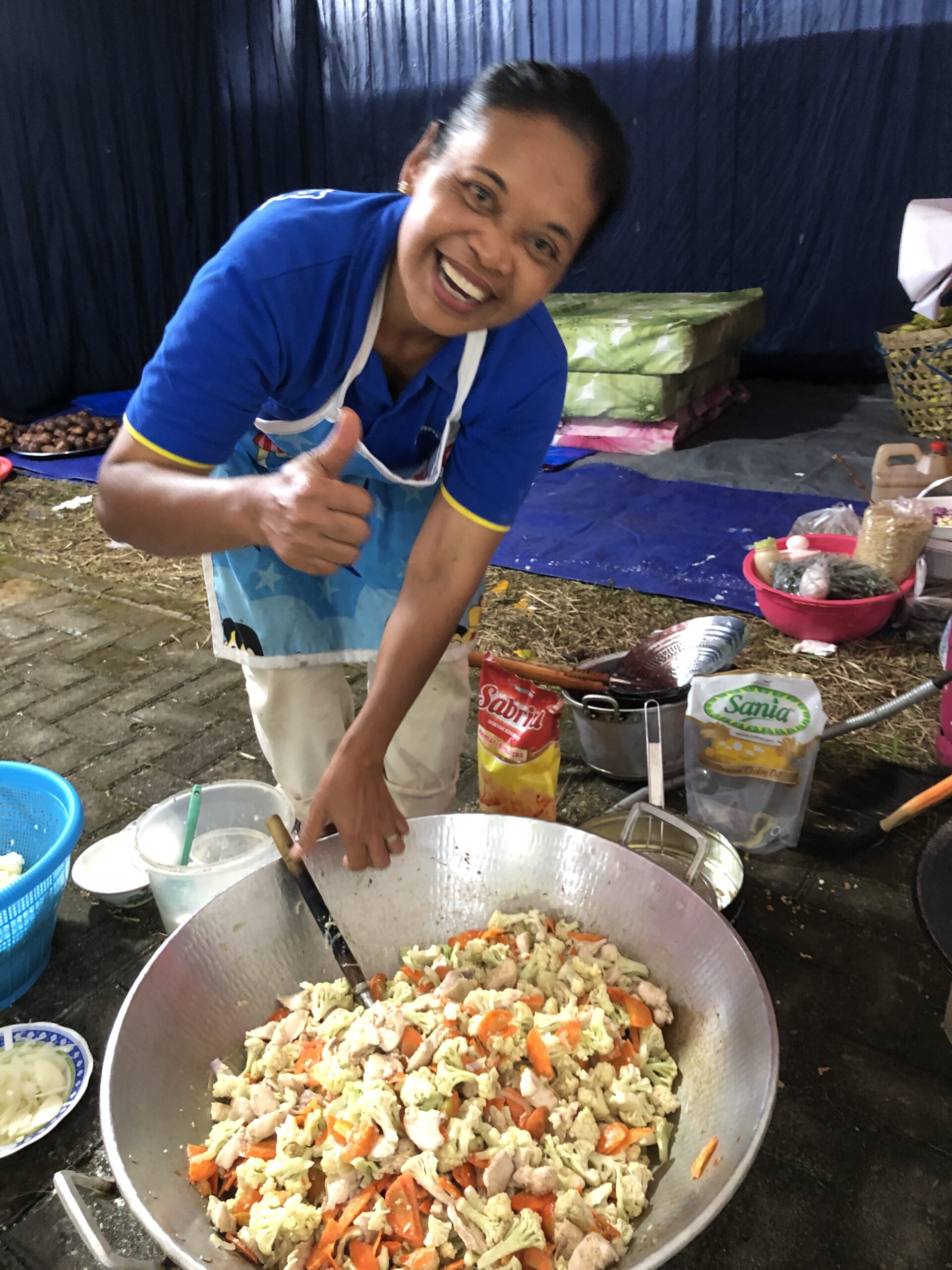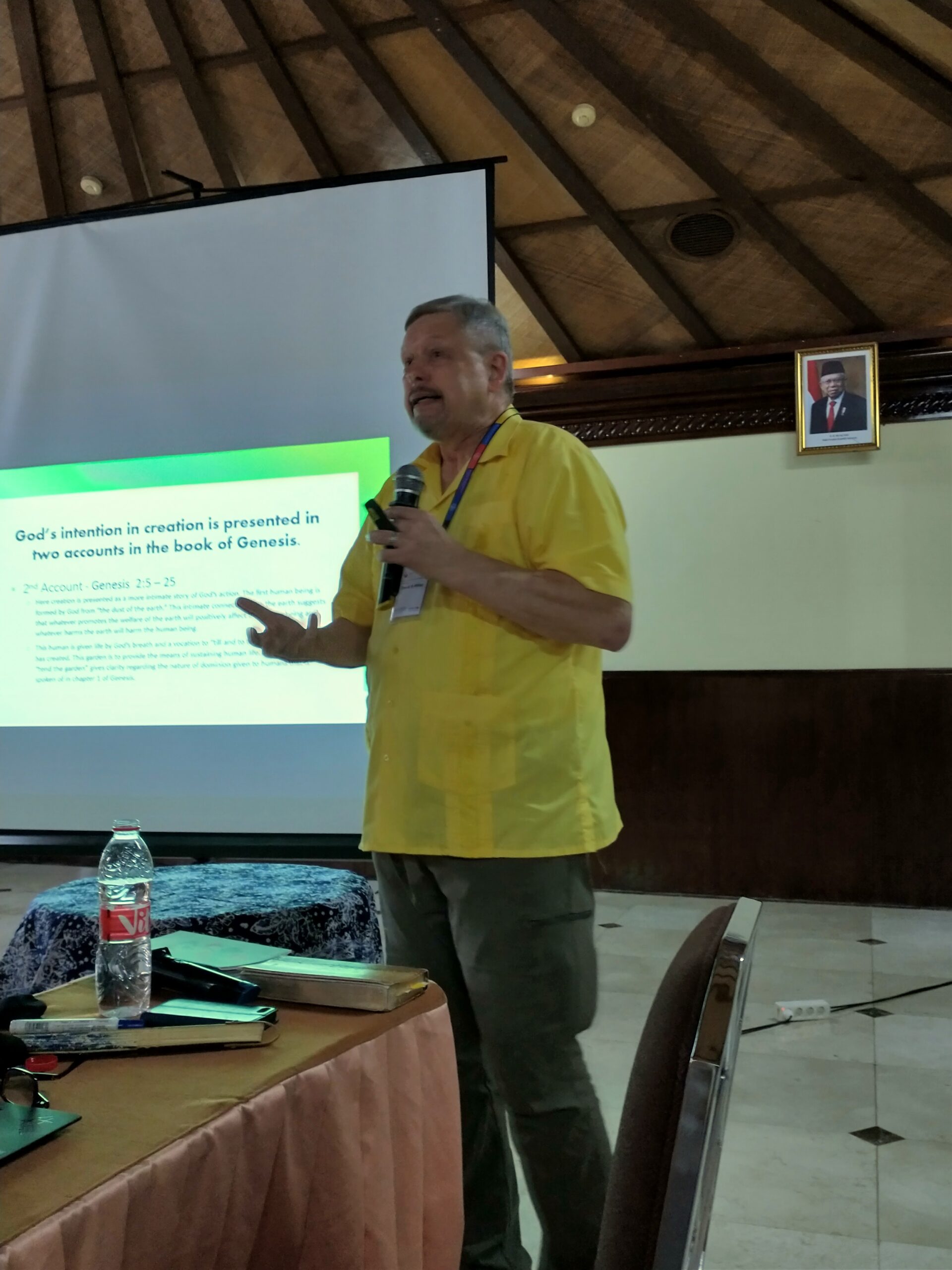This blog is part of our Mennonite World Conference Indonesia 2022 Assembly series.

Carolyn Heggen, Ofelia Garcia, Rhoda Keener
Rhoda Keener and Carolyn Heggen are co-presenters of the Sister Care International seminars. Rhoda is the Sister Care director for Mennonite Women USA. Carolyn is a psychotherapist specializing in trauma healing.
___________________________________
It’s a long way from the United States to Indonesia; it took four airplanes for each of us, totaling 20-25 hours in the air before arriving at Semarang; then, it’s another hour by car to the Mennonite World Conference (MWC) Assembly site in Salatiga. Before receiving our hotel placement, we were tested for COVID-19, and we learned that many of our friends had tested positive and were already in quarantine. Fortunately, we tested negative, and our MWC Assembly adventure began.
Our greatest joy at MWC Assembly was reconnecting with friends from around the world, many of whom we met while we were teaching Sister Care seminars across 20 countries.
We met friends from India, Indonesia, Burkina Faso, Mexico, Costa Rica, Argentina, Guatemala, Honduras, Bolivia, Puerto Rico and the United States.
Clearly, planning an event of this magnitude in the middle of a pandemic is a formidable task. We appreciated the care the planners took in requiring temperature checks at each large gathering, regular testing and masking at all times in public places. Providing hybrid and streamed worship services was a daunting challenge.
The biggest highlight for us in worship was the music that the international choir provided, singing in a variety of musical styles in different languages. As part of the opening ceremony, beautifully costumed dancers performed a traditional Indonesian dance, waving colorful batik fabrics, accompanied by musicians who were playing Indonesian marimbas and drums.

An Indonesian woman, preparing a meal for MWC Assembly participants
One afternoon, we arrived early at the worship center and wandered into the cooking tent, where we were warmly welcomed by Indonesian women who were working hard to cook meals for the Assembly participants. We admired the hard-boiled eggs and delicious chicken and vegetable dishes cooking over an open fire. They humorously invited us to help them stir the pots.
We led four workshop sessions, two about Sister Care and two about Compassionate Care — the co-ed version of the Sister Care seminar. Esther Muhagachi, virtually, from Tanzania, and Ofelia Garcia, from Mexico, co-taught the Sister Care seminars with us. Esther and David B. Miller, teaching associate at Anabaptist Mennonite Biblical Seminary, co-taught the Compassionate Care seminars with us. Wara Widuri and Anielle Santoso, who had hosted a prior Sister Care seminar in Indonesia in 2019, assisted us for the MWC Assembly seminars.

David B. Miller, teaching a Compassion Care seminar
As we’ve taught Sister Care and Compassionate Care seminars, we’ve come to realize how important it is that people are given alternative ways to understand Scriptures about the roles of women and men in the home and church. In the Compassionate Care seminar, David presented his understanding of God’s intention in sending Jesus as a model for relationships. After the fall, sin distorted the mutuality and trust between men and women. Too often, the resultant model of domination and hierarchy of men over women is held up as God’s intention, instead of this being understood as the result of sin. David taught that Jesus and the way he treated women and other oppressed people shows God’s true intention for the new creation. His written synthesis of this teaching, “From Original Creation to the New Creation: Understanding God’s Intention for Relationships Between Women and Men,” was made available in English, Indonesian and Spanish.
Ofelia shared about teaching Sister Care in cross-cultural settings, like the Mennonite Colony women in Mexico. She also made her adaptation of the Sister Care material for children available in English, Indonesian and Spanish. Esther talked about the significance for African women of the Sister Care teaching on setting boundaries and the difficulty women experience in finding ways to say “no” and rest.
We continue to be amazed and touched by the response to these materials. Many of the participants shared personally, during the workshops and afterward, about their own life stories that connected with the teachings. We realize that many of the people who chose to attend these workshops are kind and compassionate people who are caring for other people who are hurting and have many needs. The participants seemed to connect deeply to the teaching on compassion fatigue and taking care of one’s own heart while listening to others’ pain on both of the seminar days.
As we leave Indonesia, we carry the memories of these people and the many friends with whom we were able to reconnect.
The views and opinions expressed in this blog belong to the author and are not intended to represent the views of the MC USA Executive Board or staff.

